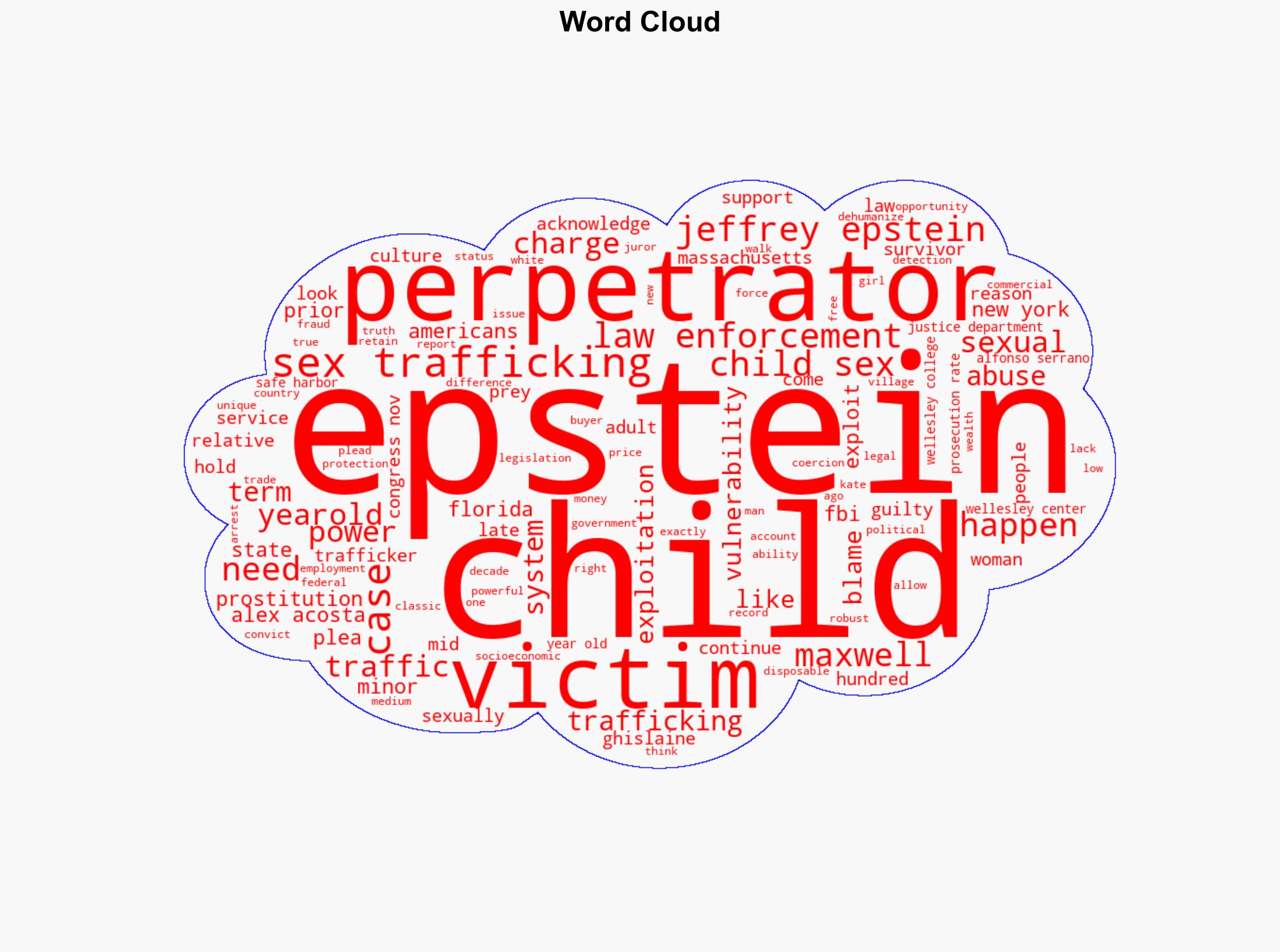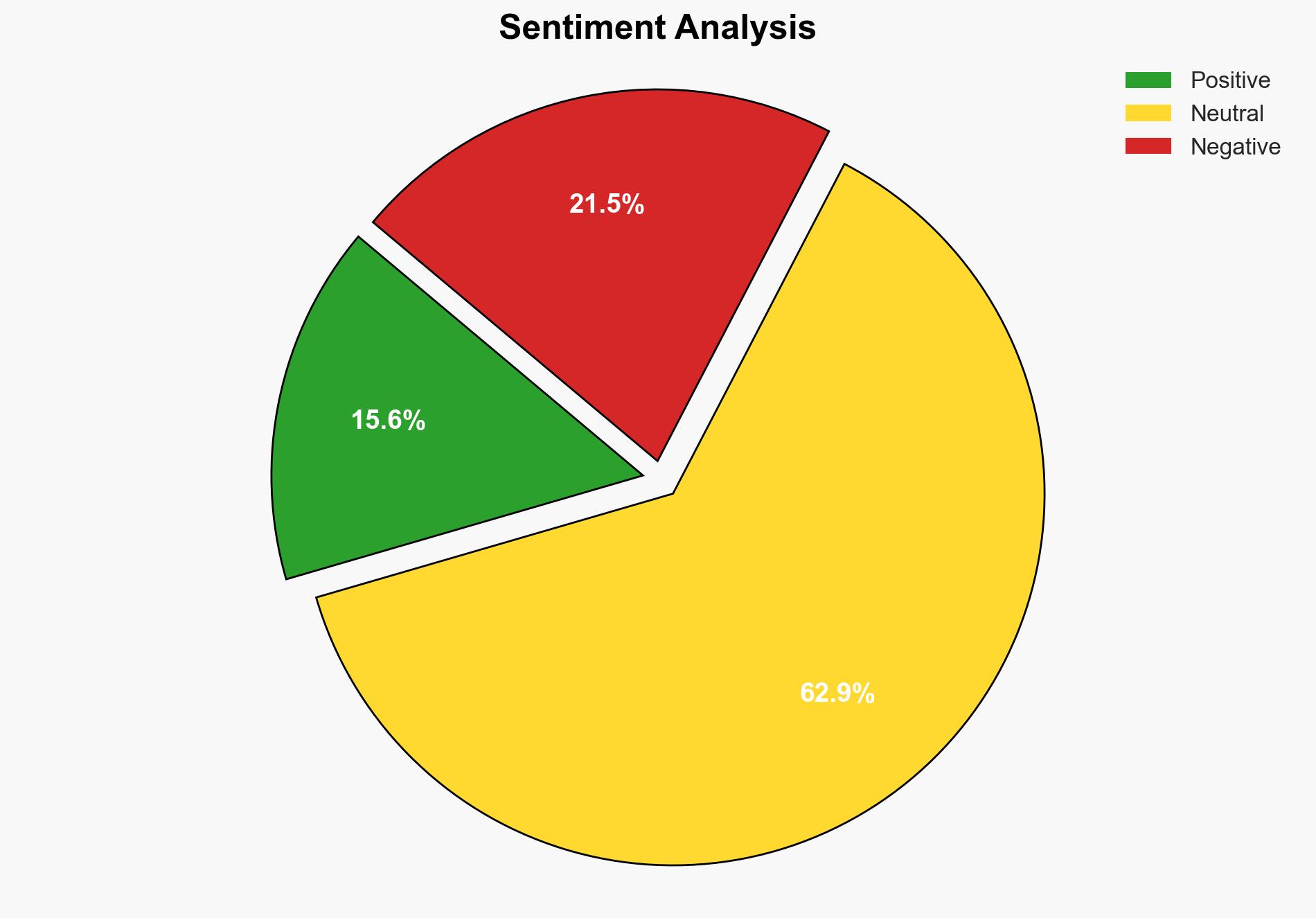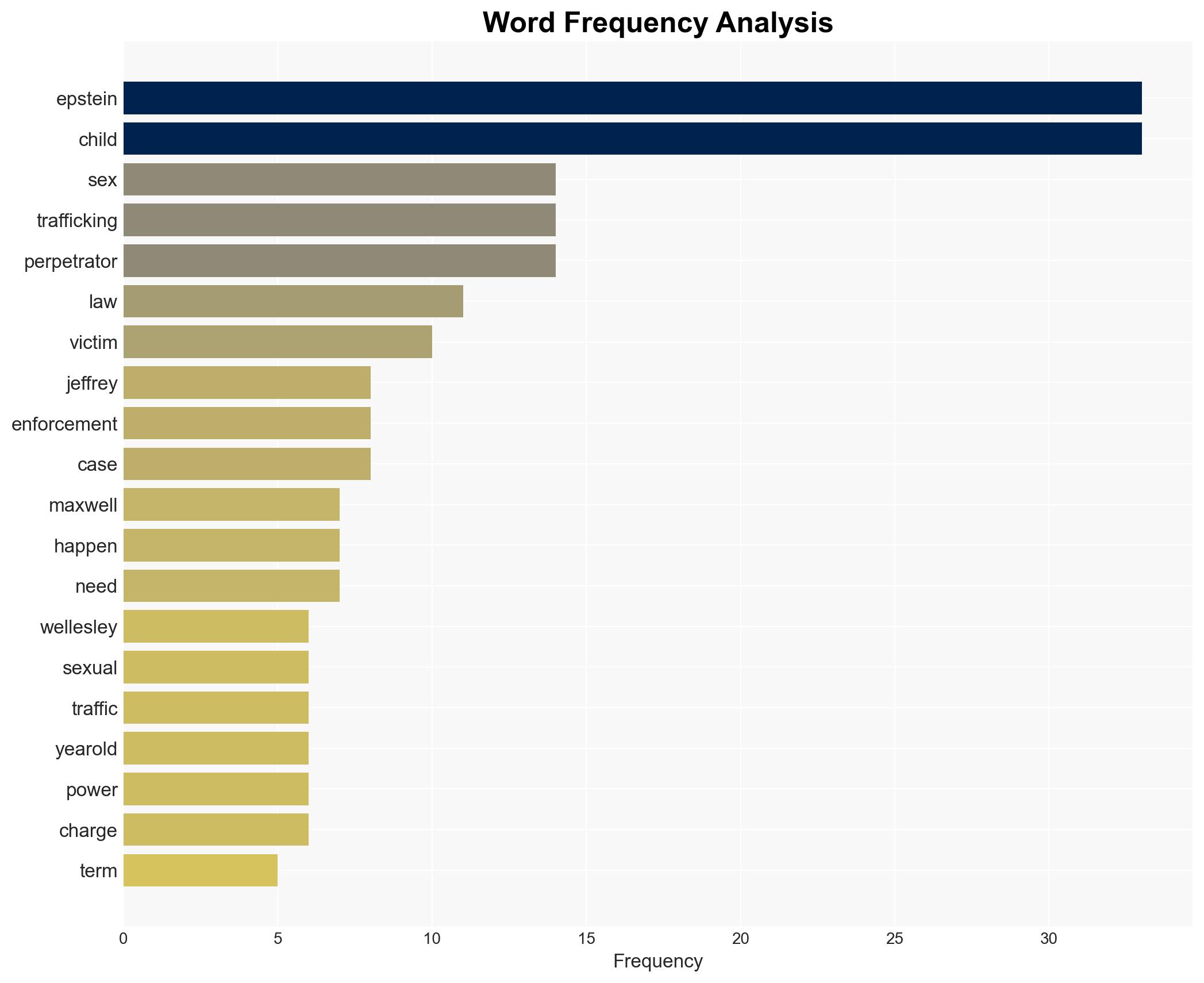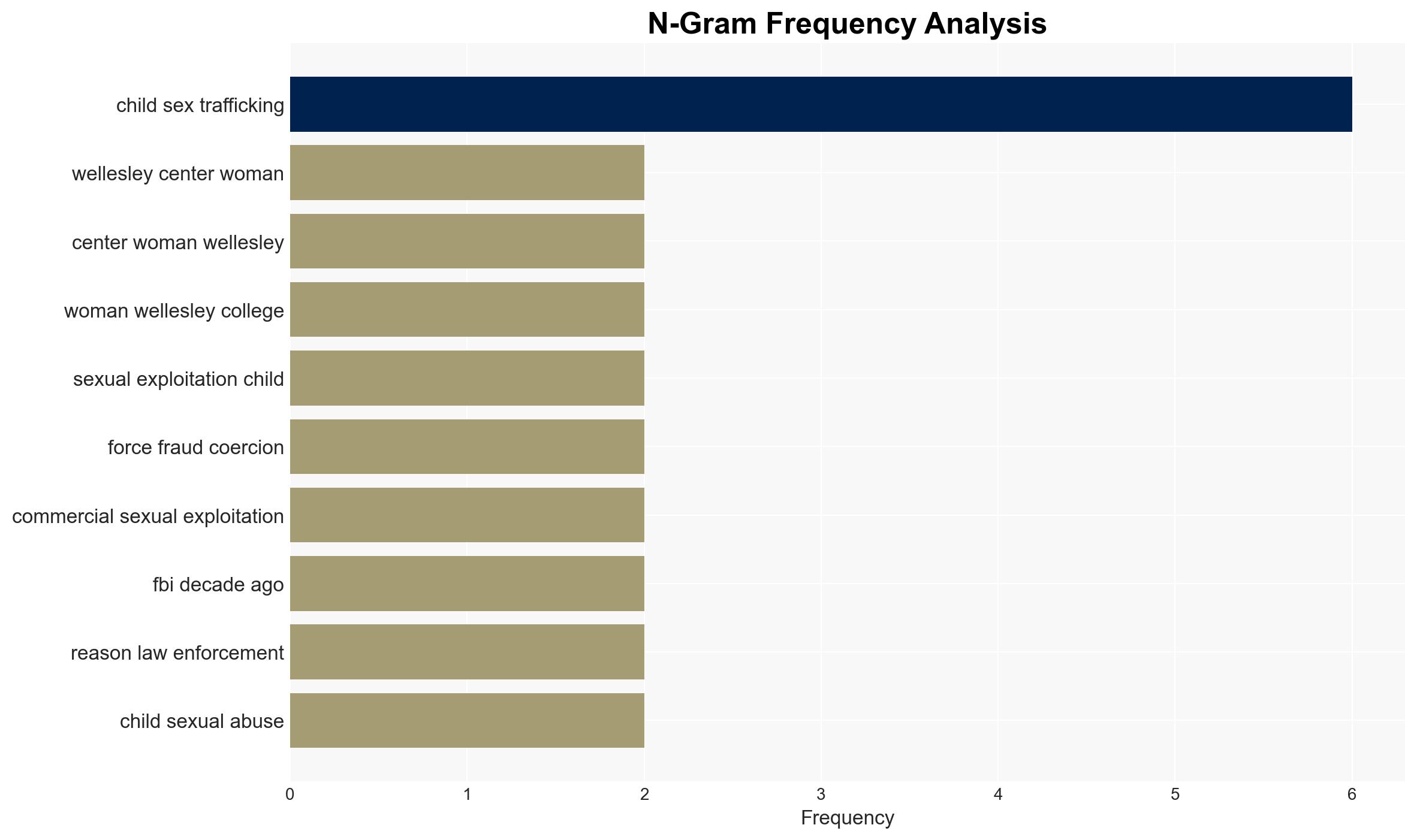Jeffrey Epstein is not unique What his case reveals about the realities of child sex trafficking – The Conversation Africa
Published on: 2025-11-20
AI-powered OSINT brief from verified open sources. Automated NLP signal extraction with human verification. See our Methodology and Why WorldWideWatchers.
Intelligence Report:
1. BLUF (Bottom Line Up Front)
The strategic judgment is that the Jeffrey Epstein case exemplifies systemic vulnerabilities in addressing child sex trafficking, particularly due to the influence of wealth and power. The most supported hypothesis is that systemic changes in legal and societal frameworks are necessary to effectively combat child sex trafficking. Confidence level: Moderate. Recommended action includes legislative reforms, enhanced law enforcement training, and public awareness campaigns.
2. Competing Hypotheses
Hypothesis 1: The Epstein case is an outlier due to his unique wealth and connections, and does not reflect broader systemic issues in child sex trafficking.
Hypothesis 2: The Epstein case is emblematic of broader systemic issues in child sex trafficking, where wealth and power enable perpetrators to evade justice.
Hypothesis 2 is more likely given the evidence of systemic failures, such as plea deals and insufficient prosecutions, which suggest a broader pattern of exploitation facilitated by socio-economic disparities and legal loopholes.
3. Key Assumptions and Red Flags
Assumptions: It is assumed that wealth and power universally shield perpetrators from justice, and that systemic reform can effectively address these issues.
Red Flags: Potential bias in media portrayal and public perception, possible underreporting due to victim stigmatization, and reliance on anecdotal evidence without comprehensive data.
Deception Indicators: Efforts by influential individuals to downplay systemic issues or redirect blame onto victims could indicate attempts to obscure the true scale of the problem.
4. Implications and Strategic Risks
The Epstein case highlights potential cascading threats, including erosion of public trust in legal systems, increased polarization on trafficking as a political issue, and potential international reputational damage. Failure to address systemic issues could lead to further exploitation and trafficking, exacerbating socio-economic divides and increasing vulnerability to organized crime networks.
5. Recommendations and Outlook
- Actionable Steps: Implement legislative reforms to close legal loopholes, enhance law enforcement training on trafficking indicators, and launch public awareness campaigns to shift societal perceptions and reduce victim stigmatization.
- Best Scenario: Comprehensive reforms lead to increased trafficking prosecutions and reduced exploitation rates.
- Worst Scenario: Continued systemic failures result in increased trafficking and public disillusionment with justice systems.
- Most-likely Scenario: Incremental improvements in legal frameworks and public awareness, but persistent challenges due to entrenched socio-economic disparities.
6. Key Individuals and Entities
Jeffrey Epstein, Ghislaine Maxwell, Alex Acosta, Alfonso Serrano, Kate Price.
7. Thematic Tags
Cybersecurity, Child Sex Trafficking, Legal Reform, Socio-Economic Disparities, Public Awareness, Systemic Vulnerabilities
Structured Analytic Techniques Applied
- Adversarial Threat Simulation: Model and simulate actions of cyber adversaries to anticipate vulnerabilities and improve resilience.
- Indicators Development: Detect and monitor behavioral or technical anomalies across systems for early threat detection.
- Bayesian Scenario Modeling: Quantify uncertainty and predict cyberattack pathways using probabilistic inference.
Explore more:
Cybersecurity Briefs ·
Daily Summary ·
Support us





